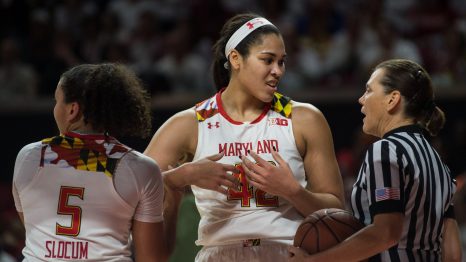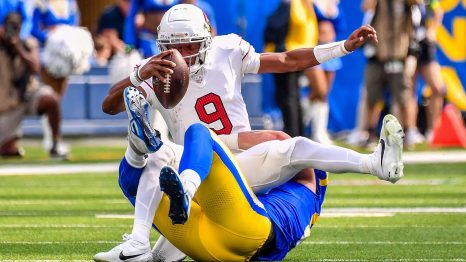Looking to bet on sports in Tennessee? We’ve got you covered with a line up of the best sportsbooks available to residents in the Volunteer State. Compare our expert sportsbook reviews, scores and sign up offers and bonuses to pick the best sportsbook for you. All of the sportsbooks featured on our site are legal in the state of Tennessee so you can rest assured that you’re in good hands. All that’s left for you to do is pick your sportsbook, sign up and place your bets.
When it comes to gambling, Tennessee is one of the strictest states in America, with no land-based gambling facilities in the state, the state shocked the nation in May 2019 when it legalized online-only sports wagering Tennessee was the first and is currently the only US state to offer online-only sports betting. So, what does sports betting in Tennessee look like? Let’s find out.
TN Sports Betting Sites
- DraftKings Sportsbook
- FanDuel Sportsbook
- BetMGM
- Tennessee Action 24/7
TN sports betting regulation
Is sports betting legal in Tennessee?
Yes, sports wagering is legal in the state of Tennessee. In May 2019, Tennessee Governor Bill Lee allowed the sports betting bill, HB 1, to become law without his signature. When HB 1 was sent to Lee for final approval, he said that he would allow the bill to become law without his signature as he does not support the expansion of gambling.
The passage of the bill legalized state-wide online and mobile sports betting only. Under the law, operators will be required to pay $50,000 to apply for a sports betting license and a further $750,000 to secure a sports betting license, these will need to be renewed on an annual basis.
Tennessee’s sports betting law is unique in the sense that it only permits online and mobile sports betting, not land-based sports betting. This marked a first for the US sports betting market.
The Volunteer State launched its online sports betting market on 1 November 2020 with the launch of DraftKings, FanDuel, BetMGM, and the local market operator Tennessee Action 24/7. Under the state’s sports betting regulations, anyone can apply to operate a sportsbook product in the state but will need to receive approval from the state regulator, other major operators who have cemented a position in the US sports betting market are expected to make an appearance in Tennessee’s betting market.
Pari-mutuel betting on horse racing and fantasy sports are also legal in Tennessee. However, because there are no race tracks in the state, residents can only use an online platform to place wagers.
Where will I be able to place bets on sporting events in Tennessee?
There are no land-based gambling venues in Tennessee which means that, unless new establishments are built in the state, residents will be limited to betting online. However, this is not a bad thing as online and mobile sports betting is much more convenient than having to physically travel to a casino sportsbook to place a bet in person.
To bet online or via a mobile betting app all you have to do is select the sportsbook you want to bet with, visit their site or download the app, create an account and then get betting. In some other states, users may only be allowed to bet in-person at a casino or must visit a casino to open an online betting account, fortunately, this is not the case in the Volunteer State.
What sports will I be able to bet on?
The bill describes sporting events as “professional sporting or athletic event, any collegiate sporting or athletic event.” This means that residents will be able to bet on a variety of sports including football, basketball, hockey, baseball, soccer, NASCAR, boxing, and UFC. Residents can bet on major leagues such as the MLB, NBA, NFL, and NHL, as well as collegiate leagues such as the NCAA football and basketball contests.
TN sports betting revenue
Tennessee sports betting revenue
Tennessee legalized sports betting in April 2019 with a bill that would create an online-only sports betting market. The state’s sports betting market launched on 1 November 2020, becoming the first online-only betting market in the US.
The activity is taxed at a rate of 20% and there is also a requirement for operators to hold at least 10% of all wagers.
Complete state reports can be accessed via the Tennessee Education Lottery portal.
Last updated on 11th January 2022
| Month |
Handle |
Revenue |
Tax |
| November 2020 |
$131,444,523 |
$13,244,908 |
$2,363,918 |
| December 2020 |
$180,900,000 |
$13,900,000 |
$3,080,000 |
| January 2021 |
$211,300,000 |
$20,900,000 |
$4,300,000 |
| February 2021 |
$176,300,000 |
$13,000,000 |
$2,600,000 |
| March 2021 |
$205,900,000 |
$18,000,000 |
$3,200,000 |
| April 2021 |
$172,400,000 |
$15,500,000 |
$2,800,000 |
| May 2021 |
$160,900,000 |
$15,400,000 |
$2,700,000 |
| June 2021 |
$174,500,000 |
$18,300,000 |
$3,200,000 |
| July 2021 |
$144,500,000 |
$15,100,000 |
$2,600,000 |
| August 2021 |
$144,500,000 |
$13,200,000 |
$2,000,000 |
| September 2021 |
$257,300,000 |
$25,600,000 |
$3,300,000 |
| October 2021 |
$375,300,000 |
$23,300,000 |
$3,400,000 |
| November 2021 |
$365,700,000 |
$36,900,000 |
$5,900,000 |
| Total |
$2,700,944,523 |
$242,344,908 |
$41,443,918 |
What else can I bet on in Tennessee?
Tennessee residents may only partake in two other types of real-money gambling in the state: pari-mutuel bets on horse racing events and betting on fantasy sports with sites like DraftKings and FanDuel. In 2004, the state also launched a lottery game for residents to play. Residents and visitors can also play social casino games that don’t involve real money, such as Zynga, Big Fish, Slotomania, and Double Down Casino.
All other forms of gambling in Tennessee are illegal. Section 39-17-501 of the Tennessee Code states that: “Gambling is contrary to the public policy of this state and means risking anything of value for a profit whose return is to any degree contingent on chance, or any games of chance associated with casinos, including, but not limited to, slot machines, roulette wheels and the like.” It is because almost all casino games include an element of chance that they are illegal in Tennessee- even for friends and family to play private poker games.
Tennessee gambling laws do not make a distinction between land-based and online gambling, which means this ban on gambling on “contingent on chance” applies to both. Participating in unlawful gambling in Tennessee is classed as a Class C misdemeanor and is punishable by up to 30 days in jail and a $50 fine.
The state also has a statute that covers “gambling promotion” which means that hosting illegal gambling activities and promoting them to make a profit is classed as a Class B misdemeanor, punishable by up to six months jail time and a $500 fine.
Are offshore gambling sites legal in Tennessee?
Offshore gambling sites are illegal in Tennessee. Aside from legality, we’d recommend steering clear of offshore gambling and sports betting sites because of the lack of regulation. Illegal and unregulated sites may not be sure and won’t always have measures in place to protect vulnerable players. You also have no way of finding out who is handling the money you deposit into your online account when gambling at offshore gambling sites.
You can spot offshore gambling sites by looking at the website’s domain name. If you see a domain that ends in .EU or .AG it does not hold a license to operate in Tennessee and therefore should be avoided at all costs.
Will it be safe to bet on sports in Tennessee?
Current Tennessee gambling laws are very strict and this extends to the regulatory framework for sports betting. Regulations ensure that ensure gambling in the state is safe and fair for all involved. However, it’s also up to gamblers to take responsibility for safe and fair gambling, and never gambling more than you can afford to lose is vital. There are also other organizations that can provide support if you believe that you, or a loved one may be suffering from gambling problems, including the National Council on Problem Gambling and the Tennessee Department of Mental Health & Substance Abuse Services.
You can contact the National Problem Gambling Helpline via:
Phone: 1-800-522-4700
Text: 1-800-522-4700
Online chat
You can contact the Tennessee Department of Mental Health & Substance Abuse Services:
Donathan Knowles, Program Specialist
Dept. of Mental Health and Substance Abuse Services
Phone: (615) 770-0460
Email: [email protected]
Who regulates gambling in Tennessee?
It’s the Division of Charitable Solicitations, Fantasy Sports, and Gaming that oversees gambling activity in Tennessee. However, sports betting is overseen by the Tennessee Education Lottery.
How old do I have to be to gamble in Tennessee?
Tennessee residents must be at least 21 years old to bet on sporting events.
TN sports betting history
The journey to legal and regulated sports betting in Tennessee
1906 – The state of Tennessee prohibited wagering on horse racing which led to the collapse of the previously successful racing industry.
1992 – Congress passed the Professional and Amateur Sports Protection Act (PASPA) prohibiting sports betting across US states. Four states were made exempt from the law: Nevada, Delaware, Oregon, and Montana. These states had legal sports betting regulations in place.
2003 – A voter referendum was held in which citizens voted for the state to run a lottery. The lottery is called the Education Lottery and any profit generated through the lottery is allocated to educational projects in Tennessee.
2004 – The state’s first lottery draw took place.
2005 – The Attorney General shared their view on poker tournaments in regard to the state’s broad legislation. The Attorney General said that poker tournaments fall under the state’s current gambling laws, even if nobody is making money from hosting the games.
2010 – Charity bingo and lottery events were permitted as a way of generating money for good causes. These are limited, licensed and strictly intended to generate money for good causes.
2016 – The state passed the Fantasy Sports Act which permits fantasy sports operators to purchase a license to operate in Tennessee.
2017 – A bill was introduced by State Representative Larry Miller which would legalize casino gambling, but the bill didn’t make it past the committee.
2018 – On 14 May, the Court reached a decision. In a 7 – 2 vote it was agreed that one of the clauses in PASPA violated the Tenth Amendment, as it commandeered power from states to regulate their own gambling industries. This paved the way for all US states to decide whether or not to legalize sports betting. In the weeks after the repeal of PASPA a number of US sportsbooks launched across the country.
In November 2018, Representative Rick Staples authored a new sports betting bill titled the “Tennessee Sports Gaming Act.” This act would enable voters to vote in a local election to permit sports betting. This was then discussed by the state legislature in the 2019 legislative session.
2019 – In May, Tennessee Governor Bill Lee returned the sports betting bill, HB 1, without his signature allowing the bill to become law. With this, sports betting was legalized in Tennessee.
2020 – In May, the Tennessee Lottery began accepting license applications from operators hoping to offer sports betting.
On 1 November, sports wagering went live in Tennessee with the launch of four sportsbook operators. The first set of sportsbooks to go live in the state included DraftKings, FanDuel, BetMGM, and the local market operator Tennessee Action 24/7.
For more regulatory updates on sports betting in Tennessee, Compare.bet has got you covered.
Latest Betting News

Connecticut Sun star Brionna Jones is back with her collegiate program in her first coaching job; She dishes on what led to her return.

Taking a look at prop bet picks on Zac Gallen, Nathan Eovaldi, Ketel Marte and Corbin Carroll.

The Cardinals have reached the NFL basement once again, so it’s no surprise to see some draft questions in the mailbag. Let’s get to it. “If the Cardinals were to hold the No. 1 pick in next spring’s NFL Draft. How do you think that plays out?” – Cody Marmon Kyle Odegard: Quarterback prospects Caleb…

The Cardinals leapfrog the Panthers, while the Bears still remain in strong position to land the No. 1 pick in the draft.














